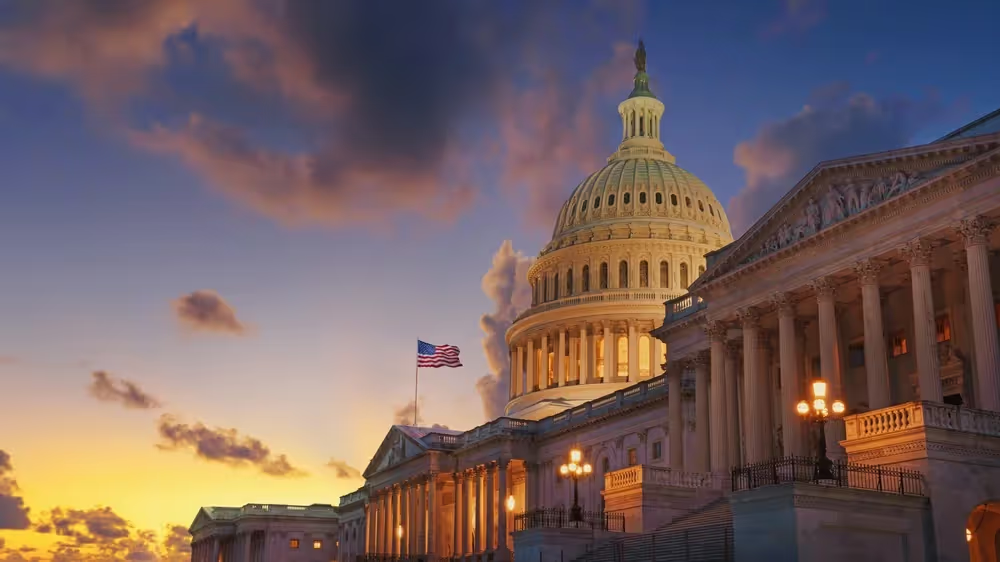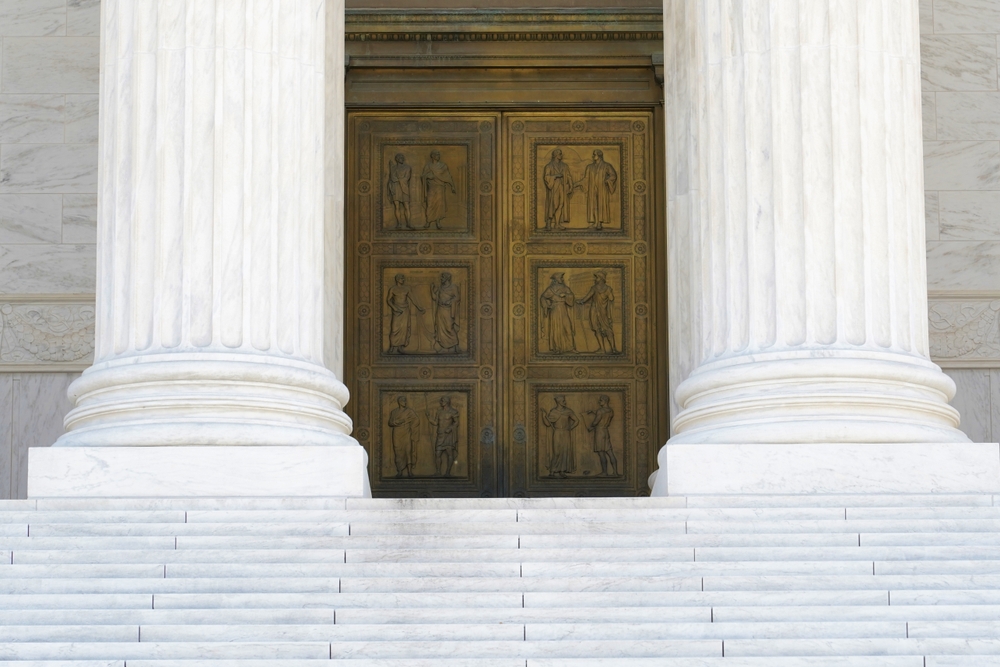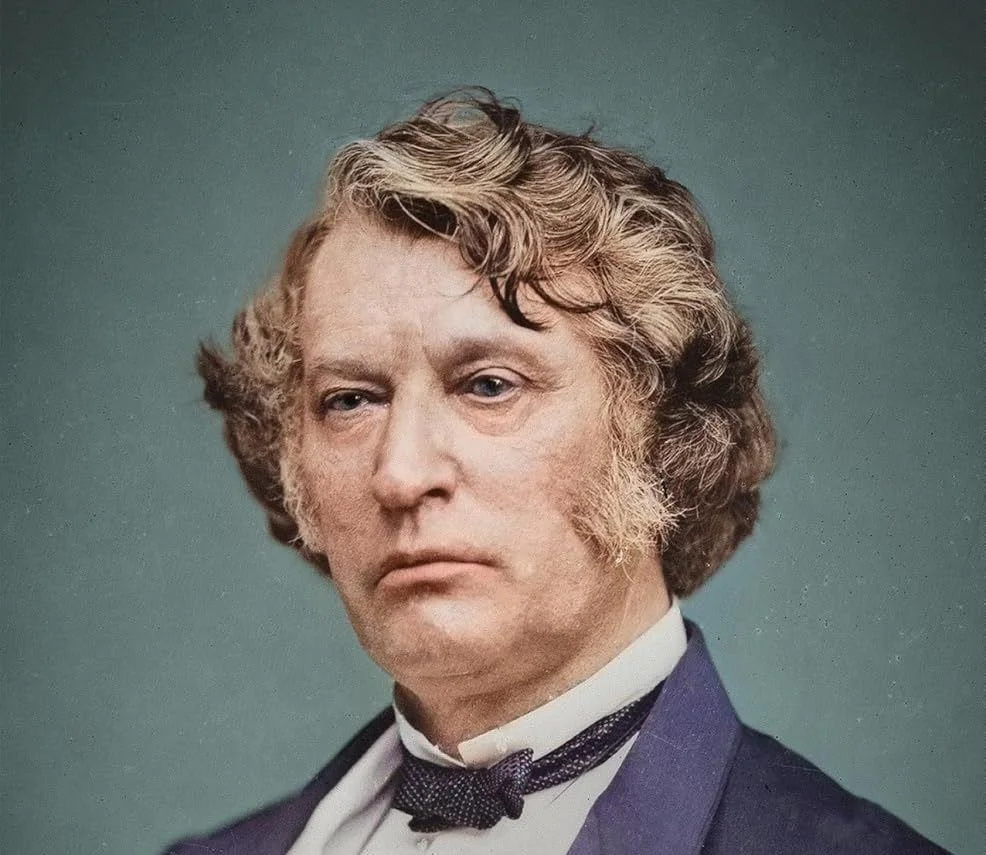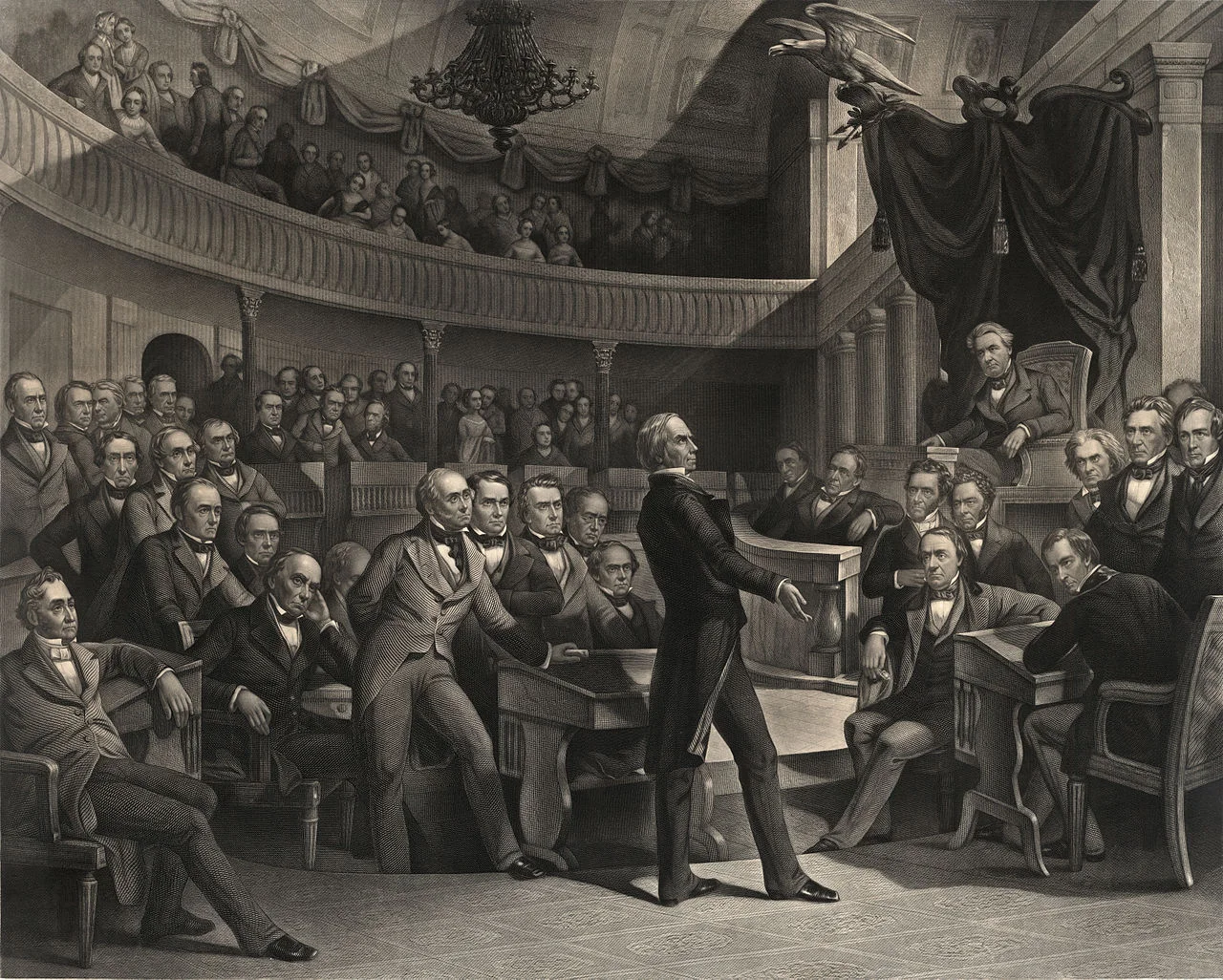
The REINS Act Would Be Another Blow to the Administrative State
The REINS Act approximates a rough sense of justice for most Americans who assume that Congress already must approve rules on matters that have profound economic effects.
Republicans will throw a wrench into the administrative state if they succeed in adding the REINS Act to this summer’s massive budget bill. A conservative priority for at least a decade, the Act would suspend major agency regulations until they receive congressional approval. Not only would the Act potentially save the economy billions of dollars a year, but it would also mark an important step in restoring constitutional principles and democratic accountability to the perpetual motion machine that is our government. Passing the REINS Act could do far greater long-term good than continuing the 2017 tax cuts or ending tax on tips.
The REINS Act requires any “major rule” issued by a federal agency to undergo congressional approval. It defines a major rule as any regulation that has an annual economic impact of $100 million or more—the level at which the Office of Management and Budget, under presidential executive order, should subject it to careful cost-benefit analysis. It also requires congressional approval of regulations that cause a major increase in costs and prices for consumers, industry, government agencies, or regions, or those that have significant adverse effects on competition, employment, investment, productivity, or innovation.
REINS is deceptively simple because most Americans, upon a quick read of the Constitution, would assume that Congress already must approve any nationwide rule that has such profound economic effects. Article I of the Constitution vests in Congress alone the authority to enact legislation. As the Court reminded in INS v. Chadha (1983), an act of government is a law if it “had the purpose and effect of altering the legal rights, duties, and relations of persons outside the legislative branch.” Everything from taxes and spending, environmental rules, and criminal punishments falls within this definition of a law. In Chadha itself, the Supreme Court struck down what was known as a “legislative veto,” which had allowed a single committee of Congress to override the Attorney General’s decision whether to deport an illegal alien. Congress could only exercise the power of legislation, the Court found, when it enacted a law that passed both houses of Congress and received a presidential signature.
But the glaring exception to this principle of bicameralism and presentment, established in Article I, Section 7 of the Constitution, is the administrative state. In vast areas of social and economic life, Congress has delegated its power to make laws to agencies. In the Clean Air Act, for example, Congress gave the Environmental Protection Agency the power to control air quality, under which the EPA sets everything from gas mileage minimums for cars to pollution standards for power plants. The only requirement Congress demands is that the standards protect “public health” with “an adequate margin for safety.” So long as it follows these vague standards, the EPA can impose billions of dollars in costs on the economy without having to go through the House, the Senate, or the White House.
Conservatives have long argued that the Constitution forbids Congress from transferring its legislative authority to executive branch agencies. In his Second Treatise on Government, Locke declared that “the legislative cannot transfer the power of making laws to any other hands: for it being but a delegated power from the people, they who have it cannot pass it over to others.” Alexander Hamilton explained in Federalist No. 75 that “the essence of the legislative authority is to enact laws, or, in other words to prescribe rules for the regulation of society” and that this power could be exercised only by Congress.
There is more to opposition to the transfers of legislative power than political opposition to progressive regulation. Broad delegation of authority to executive branch agencies reduces democratic accountability in public policymaking. If Congress must enact significant rules, voters can hold the government accountable through periodic elections. The public will know who has made the rules and what considerations went into them and can force a change if it disagrees. Progressives (of the Woodrow Wilson variety) answer that modern policymaking calls on experts, insulated from partisan politics, to make scientific decisions.
But the progressives ignored that policies often embody trade-offs, such as closing schools, which would harm the education of children, versus reducing the spread of the COVID-19 virus, rather than scientifically correct policies. Congress is just as institutionally capable of making such decisions as the bureaucracy is to make the trade-offs for tax rates, criminal punishments, or entitlement programs. Congress may have once delegated lawmaking power to agencies due to genuine uncertainty over its ability to regulate a modern economy. But today, as political scientists have pointed out, Congress more often delegates authority to agencies to escape difficult political choices over higher air quality, for example, and more expensive automobiles and gasoline.
Nevertheless, courts today have refused to enforce a non-delegation doctrine. In 2000, the Supreme Court upheld regulations under the Clean Air Act despite its broad mandate and vague limits on agency authority. Although Justice Clarence Thomas has led the call for the Supreme Court to revive the non-delegation doctrine, his colleagues have not invalidated a law for unconstitutionally transferring legislative power to the agencies since the New Deal. The Court has adopted a half-hearted version of non-delegation in its major questions doctrine, which cautions courts against reading vague statutes to give agencies broad powers over major economic and social questions. Announced in West Virginia v. EPA (2022), the major questions doctrine does not apply to the sweeping regulations passed before 2022, nor does it stop Congress from transferring broad powers to the agencies, so long as it does so clearly.
The REINS Act picks up the baton from the Roberts Court. For the last 20 years, the Justices have reined in the administrative state by narrowing the scope of the Commerce Clause, upon which its claim to nationwide regulation rests, and placing its officers under the direct control of the president. But the Constitution does not make the courts the only branch of government responsible for enforcing its norms. Both the President and Congress bear the same duty as the Judiciary to obey the Constitution; they implement the Constitution in the scope of their own unique duties, whether enacted or enforcing the law.
With the REINS Act, Congress can join the judiciary in placing limits on the administrative state. Congress created the basic problem by giving away its own legislative powers in the New Deal, the Great Society, the environmental laws of the 1970s, Obamacare, and the financial laws of the 2000s. It can now begin to undo the damage to democratic self-governance by restoring its sole control over lawmaking. The REINS Act will prevent agencies from issuing any regulations with major economic effects. In effect, it downgrades regulations from laws to proposals. Our elected representatives are free to adopt or reject them as they – and we – like. REINS does not mean the end of beneficial regulations on public health and safety, despite what chicken-little progressives may claim. Agencies will continue to develop expertise and knowledge, which they can apply in proposed regulations, but the constitutional and political responsibility for their enactment will remain with Congress.
Unfortunately, legislative barriers lie ahead for such a fundamental reform of federal administration. The Democratic Party has become the party of unaccountable technocratic government. Woodrow Wilson, after all, gave it life, Lyndon Johnson put it on steroids, and Barack Obama expanded it even in a time of shrinking resources and rising deficits. They would surely filibuster the REINS Act were it to arrive on the floor of the Senate as standalone legislation. But this summer’s budget reconciliation bill provides Republicans with the opportunity to restore Congress’s power over the laws – the filibuster does not apply to its provisions, so long as they address spending or revenue.
Senate Democrats will almost certainly object to the inclusion of the REINS Act in the budget bill, and it will be up to the Senate parliamentarian to decide whether it can stay in this summer’s package or must be deleted. However, Republicans will have one last move, which is to vote to overrule the parliamentarian and allow the REINS Act to stay in the reconciliation bill, where it would be enacted along with the rest of the taxing and spending blueprint, albeit with a filibuster-free status. Never will such a technical area of parliamentary rules have such a profound effect on the nation’s constitutional future.
John Yoo is a senior research fellow at the Civitas Institute, and a distinguished visiting professor at the School of Civic Leadership at the University of Texas at Austin. He is also the Emanuel Heller Professor of Law at the University of California at Berkeley where he supervises the Public Law and Policy Program among other programs at Berkeley Law. Concurrently, he is a nonresident senior fellow at the American Enterprise Institute.
Constitutionalism

Amicus Brief: Hon. William P. Barr and Hon. Michael B. Mukasey in Support of Petitioners
Former AGs Barr and Mukasey Cite Civitas in a SCOTUS Brief

Rational Judicial Review: Constitutions as Power-sharing Agreements, Secession, and the Problem of Dred Scott
Judicial review and originalism serve as valuable commitment mechanisms to enforce future compliance with a political bargain.

Supreme Court showdown exposes shaky case against birthright citizenship
Supreme Court will hear challenges to Trump's order ending birthright citizenship, testing the 14th Amendment's guarantee for babies born in America.

Two Hails For The Chief’s NDA
Instead of trying to futilely plug the dam to stop leaks, the Court should release a safety valve.

Charles Sumner’s Harmony with the Declaration
Sumner used the Declaration to increase the Constitution’s pursuit of forming a more perfect union.


.avif)










.avif)



